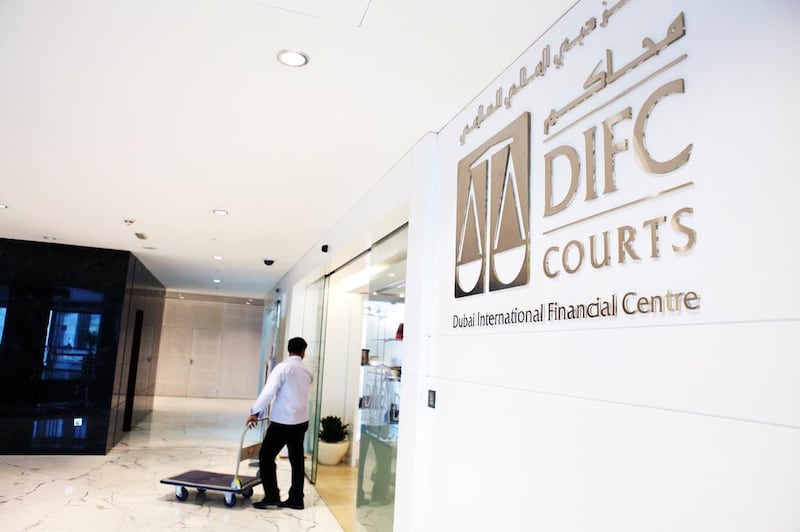For the first time in its nine-year history, a DIFC court has granted a freeze enforcement order on the basis of a ruling in a foreign court.
Dubai International Financial Centre Courts granted an application brought by the government of Djibouti against a Dubai-based businessman, Abdourahman Boreh, to freeze assets worth more than US$5 million in the emirate’s financial free zone. Mr Boreh assented to the order.
Sir David Steel, the DIFC judge in the case, said there was “a real risk of dissipation of assets”. A London court last month issued a worldwide freezing order on Mr Boreh, covering assets to the value of $111.5m.
A DIFC legal source said: “It’s certainly the first time a global enforcing order has been applied in DIFC. Nobody has sought to have one enforced there before. For people looking to seek justice in the Middle East, it’s an important development. It shows the protocols agreed between different legal systems have teeth.”
The case arises out of allegations of “abuse of position” when Mr Boreh helped to set up the port of Djibouti a decade ago. Mr Boreh, who did not attend the hearing last week and was not represented, denied the allegations. He said: “I am waiting for the final trial in London in 2015.”
The DIFC court heard that the case arises out of Mr Boreh's role as the chairman of the Djibouti port and free zone authority between 2003 and 2008. Two Dubai companies – DP World and Emirates National Oil Company (Enoc) – were involved in the establishment of facilities in the free zone. Neither is a party to the current action.
The port of Djibouti, in which DP World has a concession to operate the port facilities, is the third largest port in Africa, and plays an important role in the region as a conduit for oil imports into East Africa.
Khawar Qureishi, the barrister representing the Djibouti government at the DIFC hearing, told the court that his client had six claims against Mr Boreh, the most substantive of which was that he obtained “by subterfuge” ownership of shares of a port company in which Enoc and the Djibouti government were also shareholders. The shares had an estimated value of $65m, Mr Qureishi said.
Other claims include the alleged improper transfer of shares, granting of contracts to a construction company owned by Mr Boreh, excessive expenses claims and other commissions paid to him.
When the case was heard in London, Mr Boreh denied any wrongdoing, and said he had provided proper commercial input into the transactions and was entitled to act in his own commercial interests. The London court froze worldwide assets valued at $111.5m, including a property in London’s upmarket Belgravia, a château in the south of France and other substantial corporate assets.
Mr Boreh, who has Djibouti and French nationality, lives in Dubai and has considerable business interests in the emirate. He lives in a villa in Emirates Hills, owns three apartments in the DIFC jurisdiction and has interests in a Jebel Ali Free Zone company, as well as other residential and commercial property in the emirate.
The DIFC’s order to freeze assets within its jurisdiction involves three properties in Limestone House, close to the DIFC central Gate precinct, for which he paid $5.22m in 2008, the court was told.
Mr Qureishi asked for the freeze on the DIFC assets because, he alleged, there had been signs of “dissipation” of other assets owned by Mr Boreh in recent months, with ownership of physical and paper assets being transferred to Mr Boreh’s children in some instances, in jurisdictions ranging from the British Virgin Islands to Singapore.
Mr Boreh has alleged the case has been pursued by the government of Djibouti for political reasons. He previously had a good relationship with the country’s president, Ismail Omar Guelleh, but this deteriorated when Mr Boreh was accused of corporate tax evasion.
For the Djibouti government, Mr Qureishi also told the DIFC court that Dubai authorities were considering the African country’s extradition request against Mr Boreh on grounds of his alleged involvement in conspiracy to commit terrorist acts in Djibouti. Mr Boreh denies the claims.
fkane@thenational.ae





